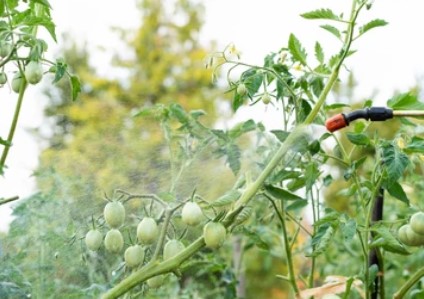Long-term use of pesticides with a single target can easily result in the development of pest and disease resistance, which can make it difficult for pesticides to manage pest and disease populations, leading to significant crop output losses as a result of outbreaks of pest and disease. Additionally, pesticide toxicity contributes to a significant number of issues with pesticide use. Pesticide toxicity and pesticide resistance issues can be resolved by creating green pesticide molecular targets.
Lifeasible is committed to sustainable agriculture. We continue to offer complete and efficient solutions for creating green molecular targets for pesticides based on our cutting-edge technology and rich research experience.

The development and utilization of green pesticide molecular targets can meet the significant needs of a country's agricultural development, and the development of a new target can not only give rise to dozens or even hundreds of pesticide varieties but also greatly alleviate the problem of resistance to existing pesticide varieties. In addition, the development of green pesticide molecular targets can meet the requirements of green agriculture development, protect ecological safety, and reduce the damage caused by using chemical pesticides to the ecological environment.
We have rich experience in research services in gene editing, synthetic biology, structural biology, biochemistry, and other research areas. Based on our advanced knowledge in multiple disciplines, we have continuously penetrated pesticide innovation. We have spawned novel mechanisms for pesticides, such as RNA interference and immune-activating proteins. We provide various solutions for developing products such as RNA sprays that block pest or pathogen genes. We also control corn insects, diseases, and RNA sprays that improve virus resistance by modifying plant gene expression. In addition, our immune inducers based on plant immune response and stress resistance provide solutions to activate the immune system and regulate plant metabolism. This will enhance the resistance of plants to disease and stress.
For example, chitin is an indispensable biological component in many agricultural pests and pathogens, and synthetase plays a crucial role in its biosynthesis. By artificial means, we inhibit the action of synthetase. This can be used to interrupt the biosynthesis of chitin, which will lead to the death of pests and fungi lacking chitin. The chitin synthase we have developed is extremely promising for pesticide applications.

Lifeasible is committed to green pesticide development, and our new green molecular targets for pesticides are of great importance in ensuring food security and promoting the green and sustainable development of global agriculture. If you are interested in us, please feel free to contact us.